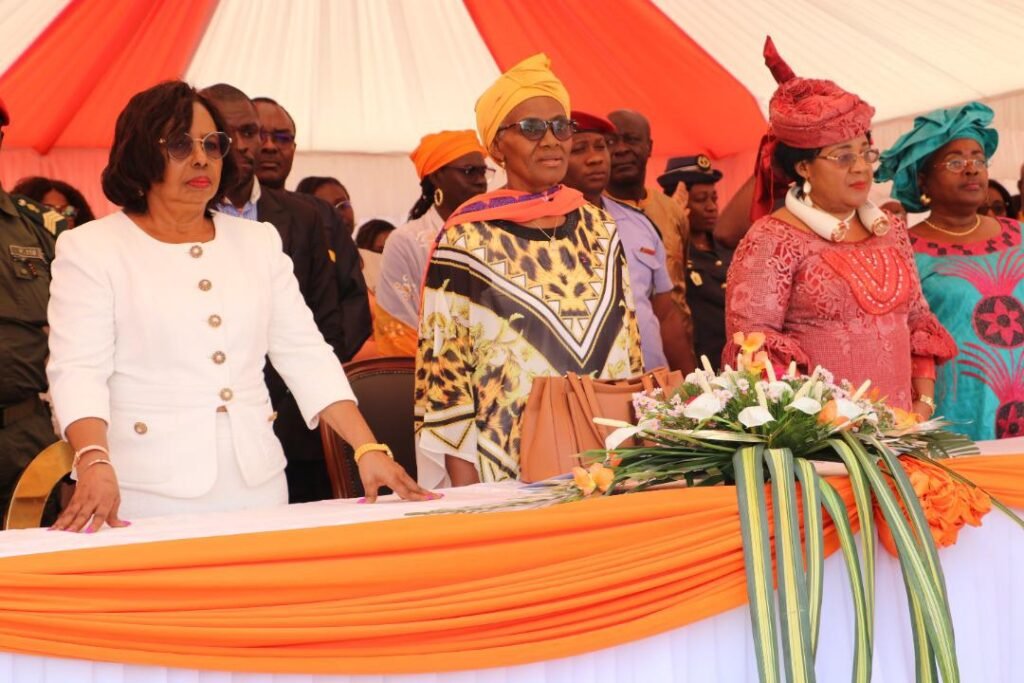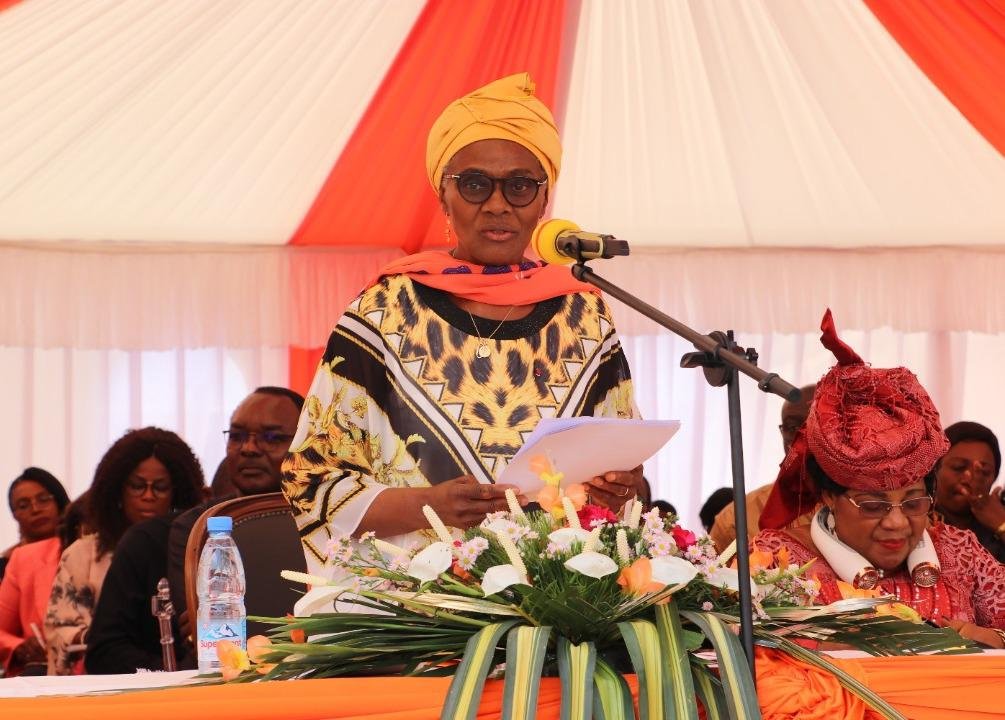Minister of women’s empowerment and the family, Marie-Therese Abena Ondoa on Friday 25th November 2022 in Yaounde, Cameroon urged all key actors to mutualize efforts in order to bring at the heels Gender-based violence.

Activities marking the international day for the elimination of violence against women and the 16th edition of the global campaign dubbed: “16 days of activism against violence on women and girls” were officially launched on Friday 25th November 2022 in Yaounde, Cameroon by Minister of women’s empowerment and the family, Marie-Therese Abena Ondoa.
The campaign that runs from November 25 to December 10 is this year placed under the theme: “Let us join forces to end violence against women and girls.”
Speaking at the ceremony, Minister Abena Ondoa Marie-Therese said the fight against Gender-Based violence, GBV remains one of the core priorities of her ministerial department and government as a whole as coordinated actions have been put in place to end this scourge.
She said the government with the support of its technical and financial partners has recently elaborated the 2022-2026 National Strategic Plan for the fight against Gender-Based Violence and a National Plan of Action to tackle female genital mutilations.

In her address, MINPROFF underscored some relevant challenges such as the environmental, health, security, and climate change crises that accentuate all forms of GBV on women and girls notably in the North-West, South-West, and Far-North regions which are rocked by the crises.
The Minister equally indicated that the government is inclined on uplifting legal challenges to restore the dignity of women and girls.
“At the national level, the principle of gender equality is affirmed in the Constitution of Cameroon adopted in 1972 and revised in 1996 and 2008. Although there is no specific law that punishes violence against women, the legal framework for the protection of women against attacks on their dignity and physical integrity was strengthened with the adoption in 2016 of Law No. 2016/007 of 12 July 2016 on the Penal Code. However, more efforts need to be made to domesticate the provisions of ratified international conventions and align them with the national legal framework. The revision of the Civil Code, which has been underway for several years, the drafting of new texts integrating the relevant provisions of the CEDAW, such as the Persons and Family Code, and the bill of law on the repression of gender-based violence are hopeful for the many victims…” Minister Abena Ondoa outlined.
GBV rates on alert
As indicated in a report from the Ministry of women’s empowerment and the family, violence against women and girls is still a reality in Cameroon and key figures show how challenging is the situation nationwide.
The report states that: “The 2018 Demographic and Health Survey (DHS) indicates that 39% of women and 42% of men aged 15-49 years reported having experienced physical violence from individuals, since the age of 15. Furthermore, 18% of women and 14% of men experienced such violence in the last 12 months of the survey. It should be noted that the percentage of women aged 15-49 who experienced physical violence from individuals in the 12 months prior to the survey increased from the 2004 DHS-III to the 2011 DHS-MICS, from 21% to 27%; then it dropped to 18% in the 2018 DHS-V.”
Added to the above statistics, MINPROFF states that domestic violence is predominant and is even the cause of several deaths.

“In terms of domestic violence, more than four out of ten (44%) women aged 15-49 in a union or in a broken union reported having experienced violence, be it emotional, physical, and/or sexual abuse, at some point by a current or most recent husband/partner and 32% of cases are recent, that is in the last 12 months. The most common forms of domestic violence for women are physical (34%), emotional (29%), and sexual abuse (10%). The results for men show that one-third (33%) of men in a union or relationship breakdown have experienced emotional, physical, and/or sexual abuse, at some point from a current or most recent wife/partner and 22% of cases are recent, that is within the last 12 months. Men mostly reported experiencing emotional abuse (30% at some point and 18% recently) compared to 12% and 7% respectively for physical violence. Compared to women, the percentages of men who experienced physical violence are about three times lower (12% and 7% compared to 34% and 20%). The DHS-V data also reveals that among women aged 15-49 who are currently pregnant or have been pregnant, 7% reported having experienced physical violence during pregnancy, regardless of the perpetrator.”
UNiTE Campaign
The “16 Days of Activism Against Gender Violence” is an international campaign launched in 1991 by activists from the Women’s Global Leadership Institute to protect women’s rights and prevent and eliminate violence against women and girls.
In support of this civil society initiative, UN Secretary-General, Antonio Guterres is calling for global action to raise awareness, galvanize advocacy efforts, and share knowledge and innovations to end Violence Against Women and Girls (VAWG) once and for all through the global UNiTE campaign against violence on women and girls launched in 2008. It is a multi-year advocacy effort for the prevention and elimination of violence against women and girls worldwide. « UNiTE” calls on governments, development actors, civil society, women’s organizations, youth, the private sector, the media, and the entire UN system to join forces to combat violence against women and girls.

The dates of 25 November, International Day for the Elimination of Violence against Women, and 10 December, International Human Rights Day, marking the beginning and end of the Campaign respectively, were chosen to symbolically create a link between violence against women and girls and human rights. Thus, emphasis is placed on the fact that such violence is a violation of human rights. The sixteen-day period also highlights other significant dates, such as 29 November, International Human Rights Defenders Day, and 1 December, World AIDS Day.
Elise Kenimbeni




